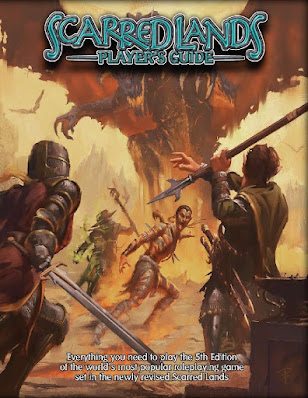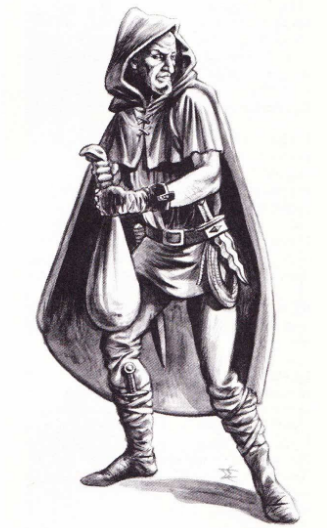I don't quite remember Dark Sun's psionic powers, only that we got one at first level. And the book is a couple of steps away, so... ;) .
Anyway, the AD&D psionic rules were too complicated for me.
If I were to write "weak" psionic powers that everyone can get for B/X, I'd use existing spells (something in the vein of
Alternate Magic's cantrips), maybe with spell points (same book). There is no need for a full new system IMO. Let's be
elegant about this. This is the "minimalist OSR" I've been talking about in practice.
These might be interesting for Monks, psionicists, and even S&S sorcerers. The following caveats apply:
* Can only affect a single target at a time.
* Save versus wands to avoid if the target is unwilling (or save versus spells, add Intelligence modifier). If successful, target knows there is something wrong, gets suspicious of you, and is immune for a day.
* Lasts for a single round (this round or next round, your choice).
* Can be maintained for multiple rounds but requires full concentration, target can make a new saving throw every round.
These can potentially be upgraded to last longer, or greater effect, for a full psionic class. Just use magic-user stats, upgrade these to their actual spell versions as you level up, do not need a spell book (or words/gestures) - but can only number a number of spells equal to what they can cast, can cast these weak versions for free (as you learn actual spells), and cannot create magic items or read scrolls, etc.
Here are 1d20 examples.
1. Mind trick. Like Charm person.
2. Mental shutdown. Like Sleep (allows the target to be attacked with double damage, but not slain outright).
3. Psionic blast. 1d6 damage, 30' range.
4. Mind Barrier. Like Shield.
5. Whisper. Like Ventriloquism but with a 10' range.
6. Mind Read. Like ESP but 30' range, requires willing target.
7. Mind Link. Like Clairvoyance but the the target must be someone willing, who spent at least one day training with the caster for this purpose. There can only be one target for the caster at a time.
8. Mirage. Like Phantasmal Force.
9. Paralyze. Like Hold Person, no penalty to save.
10. Brainstorm. Like Confusion.
11. Mind Push. Like Telekinesis, maximum weight 50 coins.
12. Mind Wall. Like an invisible Wall of Ice the size of a door.
13. See intentions. Similar to Detect evil, only works on people who wish to harm you specifically and violently in a short period (not sly merchants, thieves, schemers, etc.).
14. Soothe. Similar to Remove fear, "caster level" is zero.
15. Weaken mind. Like Feeblemind.
16. Inspire. Like Bless.
17. Quiet. Like Silence.
18. Mind blade. Like Striking; can be used against a creature you just hit.
19. Mental healing. Like Cure Light Wounds, but heals 1 HP, once a day per target. Effects are permanent.
20. Pyrokinesis. Like Resist Fire.












